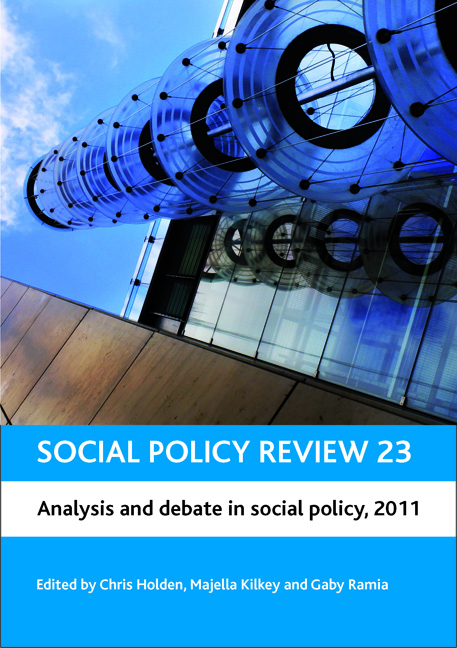six - The debate about public service occupational pension reform
Published online by Cambridge University Press: 01 September 2022
Summary
Introduction
Public service occupational pensions, covering some 20 per cent of the UK population, are currently under considerable pressure. Journalists and politicians have been voluble in claiming that they are ‘unaffordable’, ‘unfair’, ‘gold-plated’ and the privileged element of a ‘pensions’ apartheid’ (see, for example, Cameron, 2008; Cable, 2009; Brummer, 2010). In more measured tones, academics, business lobbyists, think tanks and financial analysts have argued that they are in urgent need of reform. The Blair-Brown administrations accepted there were concerns and secured a number of negotiated adjustments to arrangements for new entrants. The changes now being advocated constitute a more radical agenda involving the restructuring of pension design and funding for both new and existing members.
Such proposals are not without criticism, however. Unions, academics and other observers have cast doubt on the quality of the reformists’ case, claiming many of their revisions are based on poor analysis and unsound evidence. They question whether further amendments are necessary, ask why they are being discussed without consideration of broader social security issues, and wonder whether the proclaimed need for ‘affordable’ pensions is actually a Trojan horse for a further concerted effort to roll back state provision. The Coalition government's programme of fiscal consolidation and appointment of the Independent Public Service Pensions Commission (IPSPC), with an affordability, fairness and savings remit, has reified these concerns. The Commission's final report was due before the 2011 Budget, but the interim report, published in October 2010, concluded that a continuation of present arrangements was not tenable (IPSPC, 2010a).
This chapter provides a background to the Commission's appointment, outlining the case that has been made for and against further reforms by a range of analysts. It begins with a summary of Labour's amendments before looking at why change proponents (‘reformists’) think more radical revisions are necessary and what they are proposing. It then examines the (‘critics’’) counter-position before briefly considering the issues emerging from the debate.
Labour's reforms
When it came to power in 1997, Labour inherited an array of public service pension schemes that differed markedly in membership, eligibility, entitlements, funding and governance (illustrated in Table 6.1).
- Type
- Chapter
- Information
- Social Policy Review 23Analysis and Debate in Social Policy, 2011, pp. 103 - 126Publisher: Bristol University PressPrint publication year: 2011



